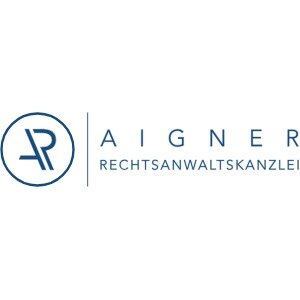Best Inheritance Law Lawyers in Linz
Share your needs with us, get contacted by law firms.
Free. Takes 2 min.
List of the best lawyers in Linz, Austria
1. About Inheritance Law in Linz, Austria
Inheritance law in Linz follows the Austrian civil code and court procedures that apply throughout Austria. The core rules are set out in the Allgemeines Bürgerliches Gesetzbuch (ABGB), which governs who inherits, how shares are allocated, and what constitutes a valid will or testament. Local practice in Linz mirrors national rules, including court processes for verifying heirs and handling estate assets.
In Linz, as in the rest of Austria, there is no general inheritance tax since 2008. Instead, the focus is on legitimate shares, forced heirship, and the proper administration of the estate. Will documents, heirs declarations, and estate administration may involve notaries, executors, and the appropriate district or regional court depending on the case. This guide explains how you can navigate these elements with clarity and confidence.
Source: EU cross-border succession rules and Austrian inheritance framework provide a structured approach to handling estates across borders and within Austria.
2. Why You May Need a Lawyer
In Linz, specific situations often require professional legal assistance in inheritance matters. Below are real-world scenarios drawn from typical Linz cases.
- A spouse and children dispute a will or intestate share after the passing of a common parent living in Linz. A lawyer helps interpret the ABGB provisions on Pflichtteil and statutory shares and coordinates with the court on the correct distribution.
- You are appointed as an executor (Testamentsvollstrecker) or administrator of a deceased estate in Linz. A legal counsel is essential to manage debts, liquidate assets, and prepare the Nachlass for court approval.
- You own property in Linz and a co-heir challenges your claim to the Verbliebenen’s share. An attorney can assess liability, contest grounds, and safeguard your interests in negotiations or court proceedings.
- Cross-border assets exist, such as a Linz apartment and foreign bank accounts. A lawyer helps apply the EU Erbrechtsverordnung (Regulation 650/2012) to determine jurisdiction and applicable law.
- There is a risk of disputed Verlassenschaft claims or competing heirs in Linz. Legal counsel helps with discovery, valuation, and expediting the Nachlassverfahren through the local court.
- You suspect the estate plan contains a forged or invalid witnessed will. A solicitor can obtain and review documents, arrange expert testimony if needed, and pursue remedies through the courts.
3. Local Laws Overview
The Austrian inheritance framework relies on key national statutes and European rules that apply in Linz as well. Here are the main laws and regulations you should know.
- Allgemeines Bürgerliches Gesetzbuch (ABGB) - The core civil code governing inheritance, wills, estates, Pflichtteil, and intestate succession. ABGB has been the foundation of Austrian private law since the early 19th century and continues to be amended to reflect modern practice.
- Zivilprozessordnung (ZPO) - The civil procedure code that governs court procedures in Nachlassverfahren, including how heirs apply for Erbscheins and how disputes are resolved in Linz and Oberösterreich. It structures timelines, filings, and evidence requirements.
- EU Regulation (EU) No 650/2012 on jurisdiction, recognition, and enforcement of decisions in matters of succession. This regulation affects cross-border estates with Austrian assets and may determine which country’s law applies to the estate and where proceedings are heard.
Recent development to keep in mind is Austria’s integration of EU cross-border rules, which helps determine which jurisdiction applies when estates involve assets in multiple countries. For cross-border cases, Linz residents may see faster coordination between Austrian courts and foreign authorities due to EU Regulation 650/2012. EU Regulation 650/2012 provides the framework for these connections.
For authoritative details on Austrian inheritance law and procedures, you can consult the official sources listed below. They offer official text, explanations, and procedural guidance that apply to Linz and the broader Oberösterreich region.
4. Frequently Asked Questions
What is a Pflichtteil and who qualifies for it?
The Pflichtteil is a minimum legal share of an estate reserved for certain relatives. It protects descendants, surviving spouses, and sometimes parents. The exact share depends on the family situation and the estate structure.
How do I start a Nachlassverfahren in Linz?
Begin by gathering the death certificate, will documents, and list of assets and debts. File the proper application with the local court that handled the deceased’s domicile, often the Bezirksgericht or Landesgericht in Linz.
How much does it cost to hire an inheritance lawyer in Linz?
Legal fees vary by case and complexity. Many lawyers bill hourly or offer flat fees for standard tasks. You should request a written fee agreement before engaging counsel.
How long does an Erbschein process take in Linz?
The Erbschein process typically takes several weeks to a few months, depending on document completeness and potential disputes. Complex estates can take longer if issues arise.
Do I need a lawyer to draft a will in Linz?
While you can draft a will yourself, a lawyer ensures the document complies with ABGB requirements, clearly reflects your intent, and minimizes future challenges.
What is the difference between an Erbvertrag and a will?
An Erbvertrag is a binding agreement between potential heirs, while a will is a unilateral disposition of assets. An Erbvertrag is often used for lasting arrangements with a spouse or descendants.
Can I contest a will in Linz?
Yes. Contesting a will is possible if you have standing as an heir or if there are grounds such as invalid execution, coercion, or lack of capacity. A lawyer can guide you through the challenge.
Where do I file if there is a dispute over an inheritance in Linz?
Disputes are typically handled by the local district or regional court in Linz, depending on the case. A lawyer can file motions, petitions, and appeals on your behalf.
Should I use a lawyer or a notary for estate matters?
In Linz, both can be involved. A notary can authenticate documents and assist with wills, while a solicitor can handle litigation, claims, and disputes in court.
Do I need to be a resident to inherit in Austria?
Residence status can influence certain procedural aspects and tax considerations. Entitlements under the ABGB depend on relationship to the deceased and statutory shares, not solely on residency.
Is there an online portal for filing inheritance documents in Austria?
Some procedures have online portals for case tracking or submission in certain regions. A local solicitor can confirm what is available in Linz and Oberösterreich.
5. Additional Resources
These official resources provide authoritative information on inheritance law, procedures, and cross-border issues that affect Linz residents.
- EU Regulation 650/2012 (Eur-Lex) - Official text and guidance on cross-border succession within the EU. EU Regulation 650/2012
- Rechtsinformationssystem des Bundes (RIS) - ABGB and related inheritance provisions - Official Austrian legal database containing the civil code and procedural rules for inheritance. RIS
- Austrian Ministry of Justice (Justizministerium) - Government information on procedures, wills, and Erbrecht guidelines in Austria. Justizministerium
6. Next Steps
- Clarify your objective and collect key documents within 1 week. Gather death certificate, will or testament, asset list, and debt statements.
- Confirm the appropriate court and jurisdiction in Linz. Identify whether the matter falls under Bezirksgericht Linz or Landesgericht Linz for Nachlassverfahren.
- Consult a Linz inheritance attorney for a no-charge initial assessment within 2 weeks. Bring all documents for evaluation.
- Obtain an Erbschein or file the Nachlassanmeldung as needed. Allow 4-8 weeks for initial court action, depending on the complexity.
- Draft or review wills, Erbverträge, or settlement agreements with your attorney. Expect completion within 2-6 weeks after instructions are given.
- Coordinate with creditors, beneficiaries, and potential co-heirs. Implement settlement or litigation steps with your attorney’s guidance.
- Monitor the process and request updates from the court and your legal counsel. Plan for contingencies such as appeals or dispute resolution if necessary.
Lawzana helps you find the best lawyers and law firms in Linz through a curated and pre-screened list of qualified legal professionals. Our platform offers rankings and detailed profiles of attorneys and law firms, allowing you to compare based on practice areas, including Inheritance Law, experience, and client feedback.
Each profile includes a description of the firm's areas of practice, client reviews, team members and partners, year of establishment, spoken languages, office locations, contact information, social media presence, and any published articles or resources. Most firms on our platform speak English and are experienced in both local and international legal matters.
Get a quote from top-rated law firms in Linz, Austria — quickly, securely, and without unnecessary hassle.
Disclaimer:
The information provided on this page is for general informational purposes only and does not constitute legal advice. While we strive to ensure the accuracy and relevance of the content, legal information may change over time, and interpretations of the law can vary. You should always consult with a qualified legal professional for advice specific to your situation.
We disclaim all liability for actions taken or not taken based on the content of this page. If you believe any information is incorrect or outdated, please contact us, and we will review and update it where appropriate.











